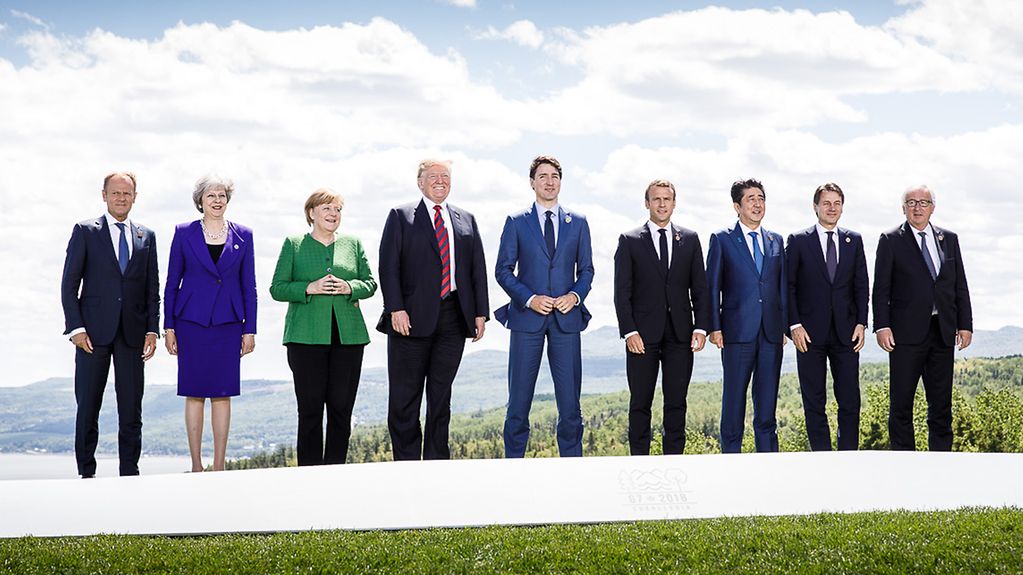Germany at the G7 summit
At the G7 summit in Canada, Chancellor Angela Merkel advocated, above all, free trade and multilateralism. She also called for "significant progress" to be made on implementing the Minsk agreements.

The traditional family photo at the start of the G7 summit shows all participants
Photo: Bundesregierung
All in all, she reported before the summit came to a close, there had been "extremely frank, and in some cases controversial discussions".
Germany, Canada, Japan, France, the United Kingdom and Italy agreed on a final communique at the end of the summit. It focuses on enhancing economic growth, gender equality and empowering women, clean energy and ocean protection.
With a view to cooperation with the USA, Chancellor Angela Merkel underscored, "I can say for myself that I have a very open and candid relationship with the American President. There are clear differences of opinion, but there are also opportunities to speak frankly and very personally with him, and I appreciate that." Federal government spokesperson Steffen Seibert added, "Germany stands by the joint communique."
Gender equality and healthy oceans
As well as the traditional topics – the global economy, trade, climate change mitigation, development cooperation and foreign policy – Canada, as host nation, set its own priorities. Also on the agenda this year were gender equality, better education for girls and women, clean energy, new technologies and jobs of the future.
The leaders also responded to Canada’s request to address the problem of pollution of the world’s oceans. The G7 discussed this topic with representatives of a number of other states, known as outreach partners. Major international organisations, including the OECD, the United Nations, the IMF and the World Bank were also involved.
Like the G20, the Group of Seven (G7) is not an international organisation, but an informal forum of heads of state and government. The G7 nations are Germany, France, the United Kingdom, Italy, Japan, Canada and the USA. The EU is also represented at all meetings.
Underscoring common ground – discussing differences
Before leaving for Canada, Angela Merkel stressed in the German Bundestag, "The G7 summit is a meeting of leaders who are united by shared values such as democracy, the rule of law and respect for human rights."
That does not, however, preclude differences of opinion. The Iran nuclear deal, climate policy and free trade are topics on which the opinion of the United States diverges from the views of the EU. Angela Merkel thus admitted, "Everyone knows that there will be difficult discussions on these points." Germany will be endeavouring, said Angela Merkel, "to ensure that the things to which we committed under last year’s G7 Presidency in Italy, and that affect the outcomes of the G20 summit with respect to trade and the climate, are upheld, and that we do not backpedal on those agreements".
Together the G7 nations are home to about one tenth of the world’s population and generate around one third of global economic output. As an informal body, the G7’s resolutions are not legally binding, but they are politically significant – and should ideally have an impact beyond the borders of the seven states themselves.









